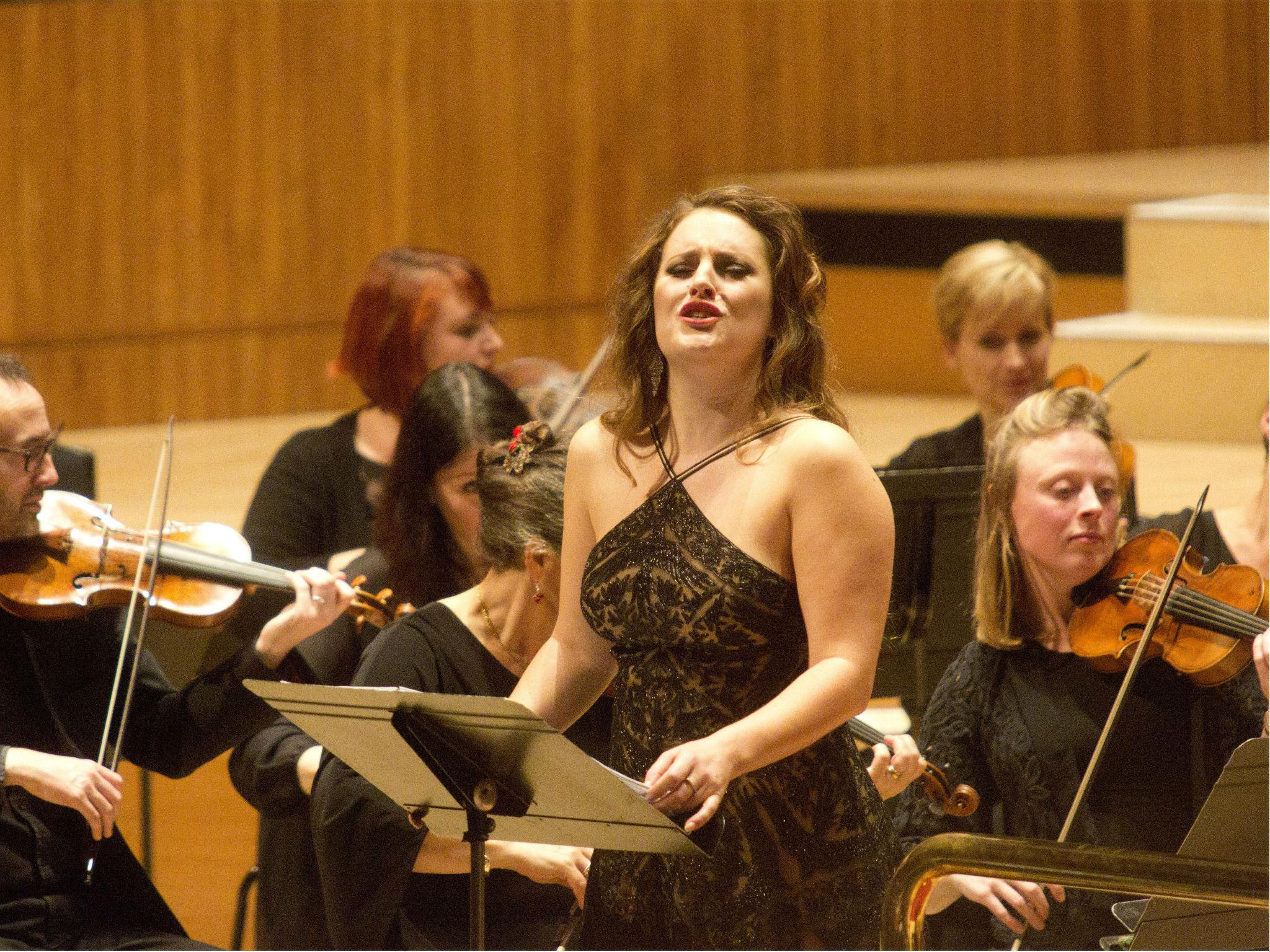Semele, Royal Festival Hall, London, review: I can’t remember one as dramatic as this one
Christophe Rousset’s soloists honour the beauties of the score while inhabiting their roles so vividly that disbelief is willingly suspended

I’ve seen quite a few stage productions of Handel’s Semele, but I can’t remember one as dramatic as the one I’ve just heard by the Orchestra of the Age of Enlightenment (OAE) under the direction of Christophe Rousset at the Royal Festival Hall. Yet this was a “mere” concert performance, with no attempt at staging. The secret, of course, lay in how it was played and sung.
When it premiered in 1744, people couldn’t decide if this was an opera or an oratorio. It drew on the traditions of the new Italian operatic style, but also on the English melodic tradition of Purcell, and on dance forms including the gavotte, hornpipe, and siciliano. It wasn’t a success and, apart from the ravishing “Where’er you walk”, it languished forgotten for two centuries, before being exhumed and recognised as one of the most consummate products of Handel’s maturity.
Semele is a vain little creature who spurns her human betrothed in favour of a fling with Jupiter; jealous Juno tricks her into demanding that he elevate her to immortality by appearing to her as the Mighty Thunderer; when he does this – regretfully, because he’s a decent, caring sort of god – she’s burnt to a crisp. It’s a comedy, but with a tender subplot, and thanks to Congreve’s libretto it’s shot through with wit and humanity
When not luxuriating in Handel’s slow lyrical numbers, Rousset’s tempi tore along; blessed with a brilliant solo cellist and immaculate performances on natural horns and trumpets, the OAE and its chorus played and sang a blinder. Meanwhile, with just one exception, his soloists honoured the beauties of the score while inhabiting their roles so vividly that disbelief was willingly suspended. Versatile baritone Ashley Riches doubled resonantly as King Cadmus and Somnus, the god of sleep, while James Way’s pocket Jupiter exuded melodious warmth.
And at the heart of the drama were three outstanding female performers. Mezzo-soprano Ciara Hendrick gave voice to her hopeless love with such persuasive grace that you could sense the hall holding its breath. Catherine Wyn-Rogers – always a larger-than-life presence – galvanised the evening with G&S gusto as the implacable Juno. And soprano Louise Alder set a new benchmark for “Myself I shall adore” – Semele’s ecstatic paean of self-love – by pouting, tossing her curls in the mirror, and emitting little squeaks of delight, while delivering her technically demanding coloratura with exquisite control: a comedian with a golden sound.
Subscribe to Independent Premium to bookmark this article
Want to bookmark your favourite articles and stories to read or reference later? Start your Independent Premium subscription today.

Join our commenting forum
Join thought-provoking conversations, follow other Independent readers and see their replies